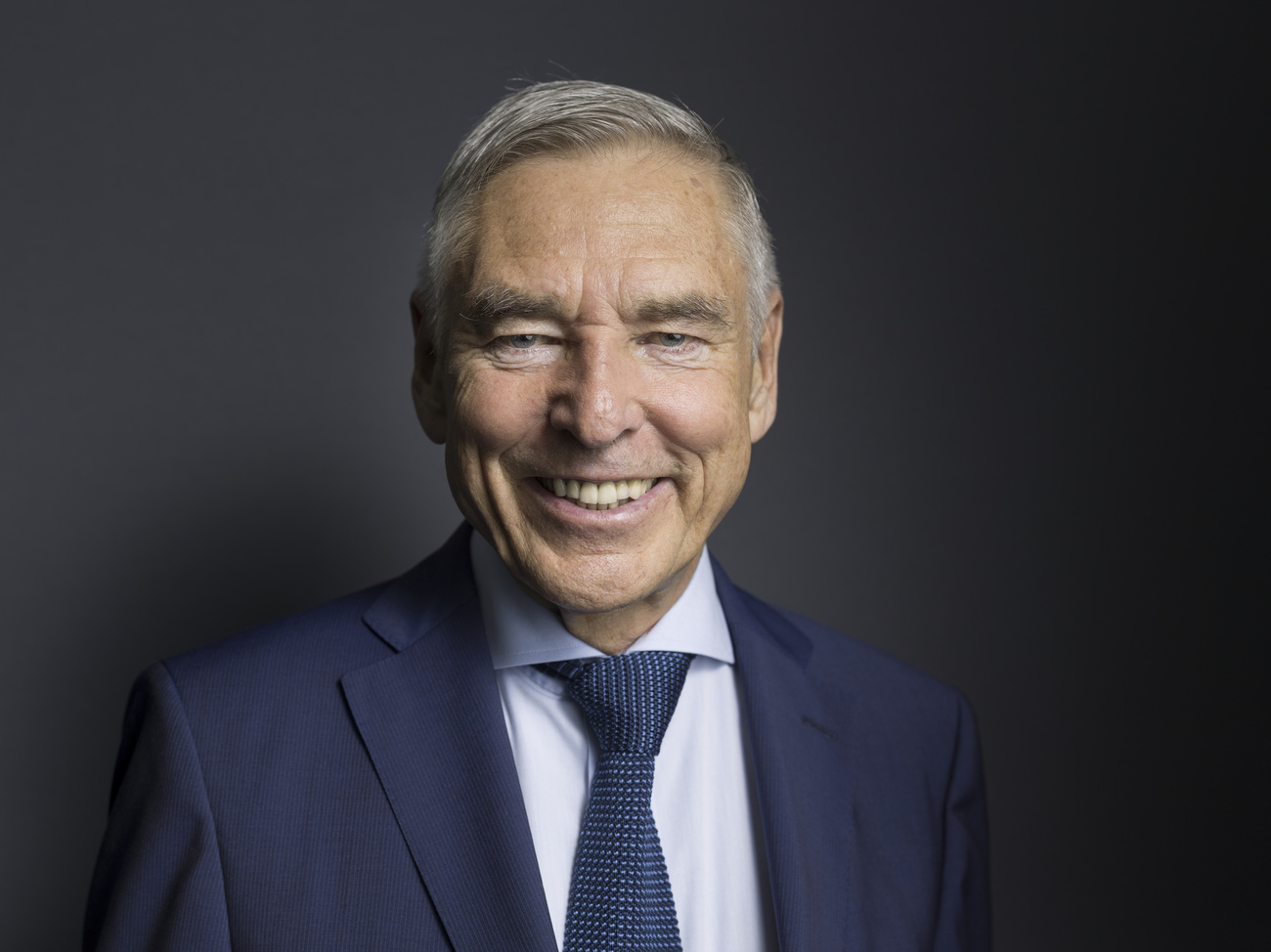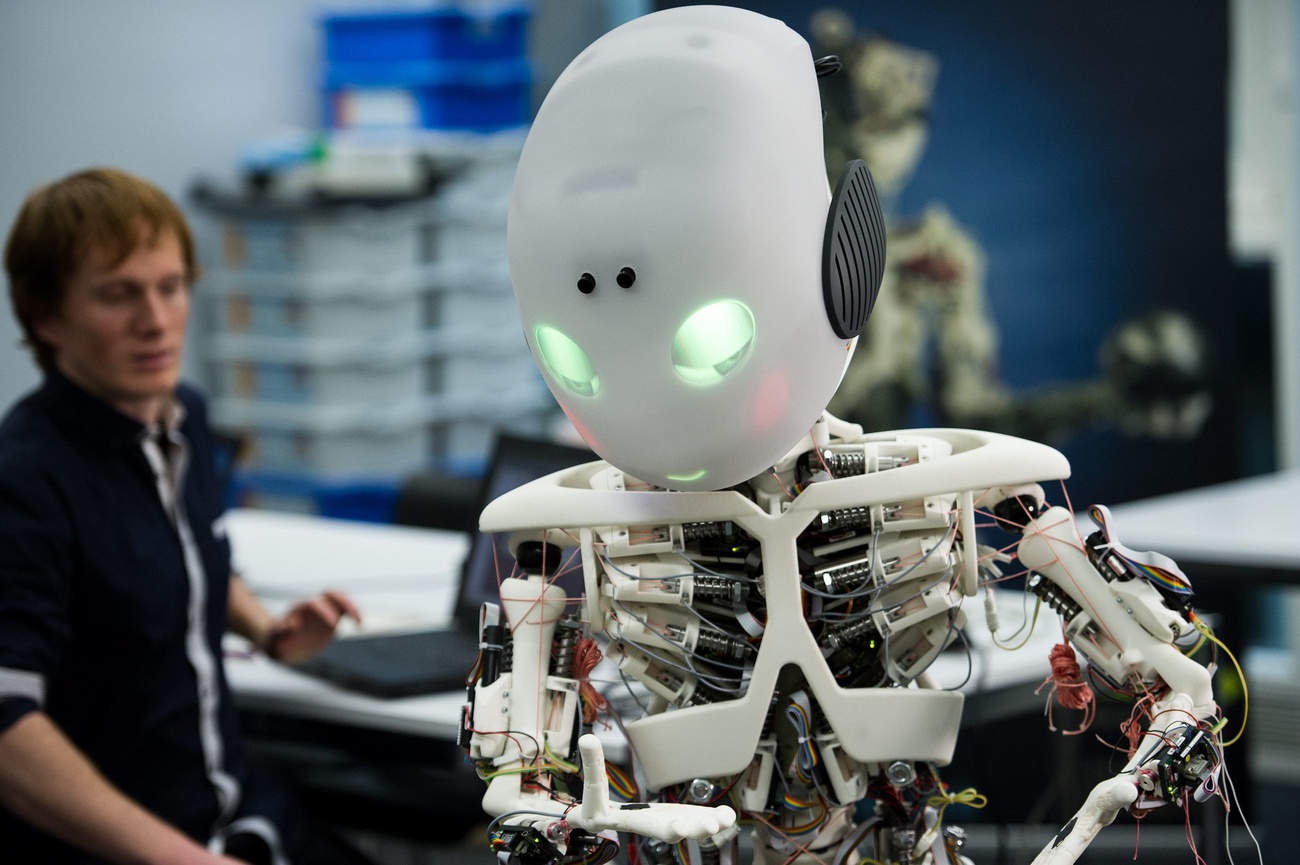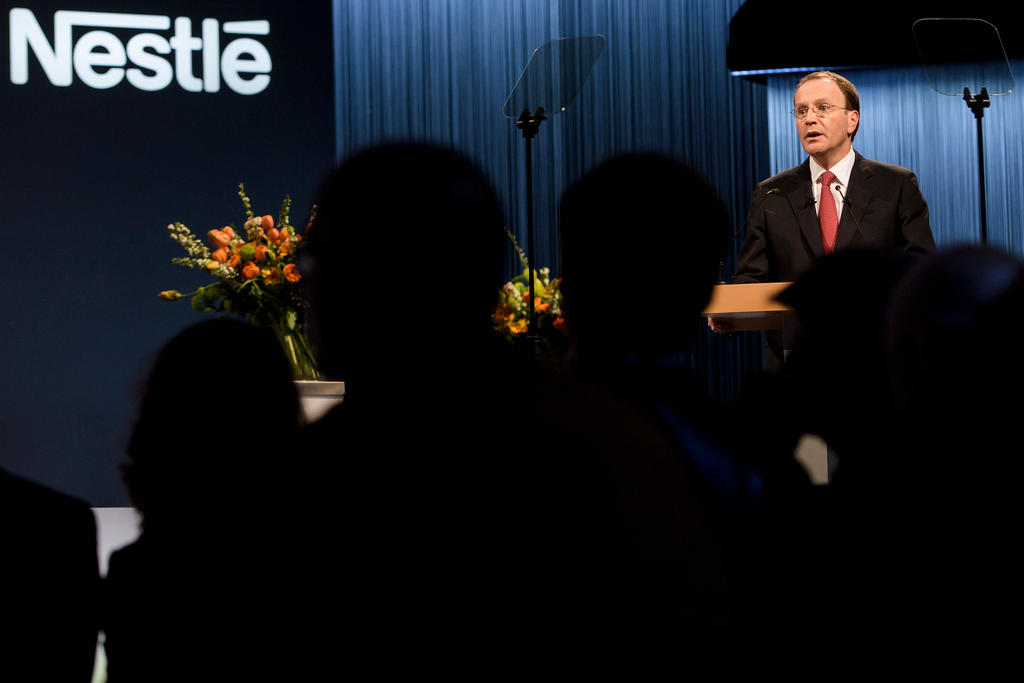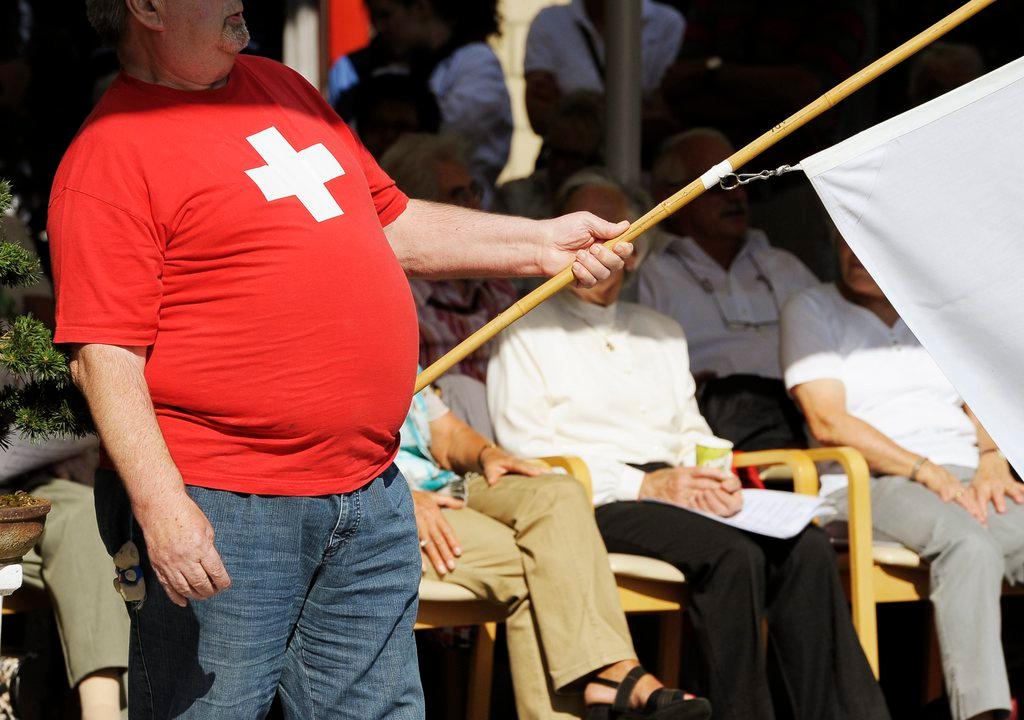Peter Brabeck: from ice cream salesman to head of Nestlé

It’s much harder to manage a small business with 30 staff than a multinational that employs 340,000, according to Peter Brabeck. The former Nestlé CEO, who started out selling ice cream on the streets of Austria, retells his story in his recent autobiography “Ascensions”.
Peter Brabeck, 76, might be retired, but he still keeps an office at Nestlé Switzerland’s headquarters at La Tour-de-Peilz near Montreux and maintains a busy work schedule. “I come here every day from 8.30am to 6.30pm, but I never interfere in my successors’ affairs,” says the Austrian businessman who became executive vice president at Nestlé in 1992. He was CEO of the global food giant from 1997 to 2008, and also became chairman from 2005 until 2017.
SWI swissinfo.ch: You came out publicly against the Responsible Business Initiative, which was rejected at the ballot box on November 29. Are you satisfied with the result?
Peter Brabeck: I am very happy for Switzerland, but much more so for the people in poorer countries. The initiative would have forced big companies to withdraw from countries where the situation is difficult. If you buy cocoa from the two large state-owned companies in Ivory Coast, for example, you will not get vilified, but you are not helping the local people either. If their children do not go to school, it is often because they do not have birth certificates. That’s where we have to start tackling the problem. It would have been good if the initiative had included the actions of non-governmental organisations (NGOs). People project their own ideas onto reality rather than the other way around.
The initiative was close. It won the popular vote, but was ultimately rejected by a majority of cantons. Doesn’t this make you think twice about the result?
The supporters pressed emotional buttons during their campaign. I am grateful to the German-speaking Swiss for staying level-headed in their vote. In French-speaking Switzerland, more people are convinced that multinational companies are generally bad. I stopped watching the news a long time ago. It is easy to manipulate opinions by using images. I prefer reading certain newspapers to shape my views. The image the media created of me did not match the person I am.
One of my most traumatic experiences was when the Ethos Foundation launched a campaign against me when I took on the double mandate as CEO and chairman. At that time, my mother called me to tell me shrouds had no pockets.
Weren’t you unnerved by the whole affair?
The media reported that I was only interested in doubling my salary when I accepted the additional role as chairman; that was completely wrong. They showed photos of a fantastic house claiming that it was mine. I only rented an apartment there, and never owned it. Fake news existed even before Trump.
But it’s true that you earned millions at the helm of Nestlé and you were one of the best-paid managers in Switzerland for years. Did you ever doubt whether you were on the right side of history?
No. The decision about the double mandate [at Nestlé] was taken by the board of directors because of the special situation of the company, and it was temporary. It proved to be the right move in the years that followed.
Despite your negative experiences, you returned to the public spotlight for the campaign against the Responsible Business Initiative. You don’t seem afraid of confrontation.
Running away from your opponent is pointless. Twice in my career I faced human rights activist Jean Ziegler who attacked me relentlessly. I did not run away from the World Economic Forum (WEF) annual meeting in Davos either when I was surrounded by anti-globalisation activists waving their banners. I am still convinced that we should listen to our critics and solve our problems through cooperation, not confrontation.
You were on the board of oil giant ExxonMobil for years. You say you are convinced that we need fossil fuels until 2030. What makes you so sure?
Climate change exists, but it is not new. Glaciers are born and they die, but is human activity solely responsible for it? There is no doubt that CO2 emissions accelerate climate change and that we have to find renewable energies. It’s true that fossil fuels are huge CO2 emitters, however, we must not blame them entirely for our environmental problems. If we do, we create other problems that are just as bad, or even worse.
Take water, for example. You need 4,600 litres of water to produce one litre of bioethanol and 9,100 litres for one litre of biodiesel. Sometimes the solution is worse than the problem. The electrification of traffic is another fallacy. Depending on the model, an electric car has to do at least 160,000 kilometres to have a smaller carbon dioxide footprint than a car with a combustion engine, but only if the power comes from renewable energy sources. This calculation does not even take into account the environmental impact of replacing the car battery.
It makes more sense to think about using less energy, for example, via much lighter cars. There are plans for an engine that uses 1.3 litres of fuel per 100km. But political pressure against fossil fuels means this idea has quietly disappeared in a drawer somewhere.
Let’s talk about your time as a Nestlé manager. What was it like to be in charge of 334,000 staff working in 190 countries?
It’s probably easier than managing a company with 30 employees. You have to share your company’s vision, motivate your colleagues, provide them with the tools to implement their ideas and give them freedom. You have to communicate again and again. It’s true that there is never a dull moment managing a multinational company like Nestlé, but the board of directors is there to support the CEO.
You have repeatedly said you cannot enjoy a long career without failure. What was your biggest failure?
Before success comes failure. It’s part of the training, and I have applied this principle when I was working for Nestlé. Before I hired or promoted someone, I wanted to know about at least one occasion when the candidate failed, and what the person learned from it.
What was your own biggest personal failure, and what have you learned from it?
It was in 1977 when we introduced milk cartons, which was not as successful as expected. We had problems with the material, but the profit margins were too small to justify any investment for research and development. Then in 1987, I had the idea that Nestlé should really be associated with proper meals rather than just soups, chocolate, coffee or milk. I bought the first pasta company for Nestlé in Venezuela, but I did not pay enough attention to the added value. Pasta simply consists of water and wheat, and we had no chance to compete with the big producers who purchased five times as much as we did.
You talk about your experiences in your autobiography “Ascensions” that came out last month. Was that your way of not totally switching off?
To be honest with you: No. Today, I only look at Nestlé from the point of view of a shareholder. I have many other hobbies. For example, I have written a book about nutrition which has been published in German, Spanish, Italian, English and Japanese – not in French though. In my recent autobiography, I explain that a mountaineer has not succeeded by climbing to the top of a mountain but when they make it back down to the valley safe and sound. It’s the same in our professional lives.
Is it difficult to let go of power?
It’s not something that can be improvised. I prepared for my resignation for two years. In 2016, just after I was diagnosed with cancer, I wrote my first book which got me lectures all over the world. I invested in areas that interested me. Giving up a managerial role that you held for a long time means you have to give up 100 percent of the things you used to do. You have to take an objective look at the company you used to manage. The new CEO makes changes, and that’s the way it’s supposed to be. I remain closely tied to Nestlé. But you will never see me pick up the phone to tell them what I think about such things.
AscensionsExternal link, Peter Brabeck, Editions Favre (in French)

In compliance with the JTI standards
More: SWI swissinfo.ch certified by the Journalism Trust Initiative





You can find an overview of ongoing debates with our journalists here. Please join us!
If you want to start a conversation about a topic raised in this article or want to report factual errors, email us at english@swissinfo.ch.